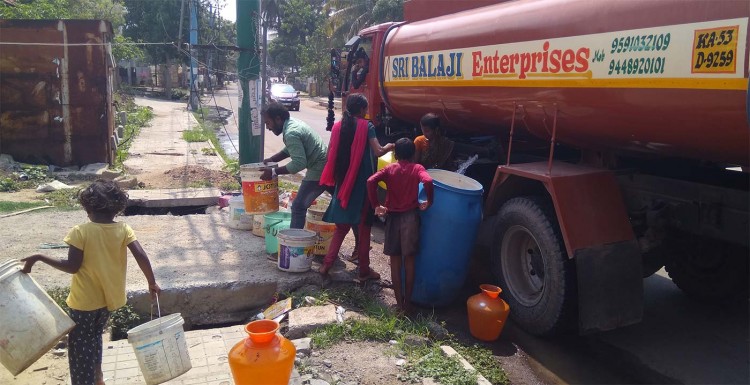CANADIAN IMMIGRATION UPDATES: Applicants to Master’s and Doctoral degrees are not affected by the recently announced cap on study permits. Read more

Water, Sanitation and Healthy space (WASH) Services for the Urban Poor

India
CURE - Water, Sanitation and Healthy space (WASH) Services for the Urban Poor

Smita Rawoot, Urban Resilience Lead, WRI (World Resources Institute)
Sponsoring institution: The World Resources Institute (WRI)
Background
In 2016, approximately 33-47% of the urban population in India was living in informal housing (slums and unauthorized housing). Studies indicate that the top stated needs of the urban informal households include toilets (44%), water (36%) and drainage (28%). While government, utilities and other service providers are working on various approaches (centralized and decentralized solutions) to provide improved Water, Sanitation and Healthy Space (hereinafter, will be called as WASH for the purpose of this project) services to urban poor, the implementation has been slow. This is largely due to endemic governance, efficiency and financing challenges in the sector, coupled with policy, land tenure and other related issues. This is leading to disastrous health and economic impacts for the communities as well as for the entire urban region. COVID19 has demonstrated (yet again) the toll of inadequate WASH provision for the urban poor and is a deadly reminder on why inclusive access to WASH matters to all of us.
Centralized WASH services have high capital and operational expenditure requirements and are often prone to failures because of lack of capital availability, poor operation and maintenance as well as due to various other technical, economic, and legal factors. Centralized systems are also prone to larger scale failures (due to climate shocks) unless redundancies are built in or the infrastructure elements are adapted to future risks.
Decentralized solutions, such as onsite nature-based wastewater treatment systems, off-grid composting toilets, onsite storm water collection and reuse systems, onsite water purification systems etc. offer an alternate approach that can be integrated and scaled for community wide applications.
The World Resources Institute (WRI) is initiating a new coalition to improve health and well-being of the urban poor living in informal settlements by fostering an enduring value chain that accelerates access to Water, Sanitation and Healthy spaces (hereinafter, will be called as WASH). This Accelerating Access Coalition (hereinafter will be called as AACO), will facilitate the development of new Public Private Partnerships (PPP) through a TheCityFix Labs model focused on identifying, developing and implementing equitable and sustainable decentralized solutions for water access, sanitation, and healthy spaces. This coalition will focus on 3-6 target cities in India (initially) to scope official interest, emerging partnerships and implementation opportunities.
Project focus
Student teams will be asked to contribute to a portion of the entire AACO project by studying existing and (scope) viable business models for the development of decentralized WASH solutions specifically to be deployed at urban informal settlements. The requirement will be to develop:
- Case studies of business models and/or new innovative technologies/systems accounting for the full or part of the WASH value chain will be developed focusing on Indian or other global south cities.
- Cost comparison of centralized vs decentralized approaches for providing WASH services will be developed for selected cities.
- Exploring various governance model alternatives (existing as well as proposed) to operate and maintain such community level decentralized WASH value chain solutions efficiently and sustainably.